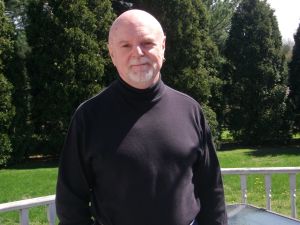The millennial generation is more prone to being spiritual as opposed to following an organized religion, studies say.
The Pew Research Center on Religion and Public Life found that nearly one-in-three members of the Millennial generation has no religious affiliation. National Public Radio agrees that “barely half of millennials say they look to religion for guidance, but a higher percentage ‘talk to God,’ suggesting that the 18 to 34 demographic is more spiritual than sectarian, according to a new survey by the Integrated Innovation Institute at Carnegie Mellon University.”
“The survey of 2,000 U.S. men and women, ages 18 to 34, found that 62 percent said they talk to God, while 52 percent said they look to religion for guidance,” National Public Radio said.
One individual who has many views on this change of heart for this generation is Ian Scott, lecturer of religious studies.
Scott is best known at Cabrini for his teaching of the course, A Search for Meaning, which introduces the study of religion through the exploration of the search for meaning among religious people, with emphasis on Christian ‘folk’ religion internationally and nationally as well as the focus on the religious or a spiritual outlook in everyday life.
“Millennials are far more tolerant and accepting of social diversity and the broadening of civil rights than previous generations,” Scott Said. “The strident opposition by traditional Christianity to things like marriage equality for gay couples emphasizes the growing gap between the values of millennials and the traditional church. The church is perceived as irrelevant or worse – leading the opposition to changes they see as socially just.”
One thing that may contribute to this change of structure is stress. According to 2014 research from the American Psychological Association, millennials and Generation X report higher levels of stress than any other generation and also appear to have more difficulty coping, while older people report lower levels of stress.
“The aftermath of 9/11, the continuing effects of the economic crash of 2007 and the challenge of climate change has meant they have come of age during a very stressful and pessimistic decade. Technology and social media add to that stress by its tendency to intrude into their lives 24/7,” Scott said. “They cope with the difficult demands of contemporary life by being a ‘party generation’ and religion can be seen as a ‘party pooper’ to them.”
‘Spirituality’ is seen as relevant to counter the stressful lives that millennials live while traditional religion seems almost counter-productive – irrelevant at best and obstructionist at its worst,” Scott said.
According to a Stanford University study where researchers surveyed 397 people over a month-long period, “a life of meaning is more deeply tied to a valued sense of self and one’s purpose in the larger context of life and community.”
“I think spirituality is far more important than mere ‘religion.’ Spirituality is ‘substance,’ whereas religion is merely ‘form,’” Scott said. “Religion may not always be a gateway to spirituality for many people today – it is just one of a variety of means to an end. What matters is finding peace with yourself and the cosmos [where] spirituality is essential to living a life in harmony with yourself, the universe you dwell in and the source of life and love from which you came.”
“Spirituality is a necessary part of being a whole person,” Scott said. “For many today, formal religion is not,”
Mayoclinic.org reveals that using forms of mediation and having a more spiritual outlook can help this youthful generation to “feel a sense of purpose, connect to the world, release control, expand your support network, [and] lead a healthier life.”
“I think a person who is aware of the need to be more than just a physical being living in a merely physical universe is on the way to finding their answer. It’s the struggle that leads to an openness to the spiritual dimension of life,” Scott said. “As Saint Augustine put it, ‘you have made me for yourself oh God. My heart is restless until it finds its rest in you.’”
Advice that Scott would like to give to those who may be struggling to find their niche in religion is, “Keep searching.”
“The options are literally infinite,” Scott said. “Don’t settle for less than a life that is satisfying to your soul.”



